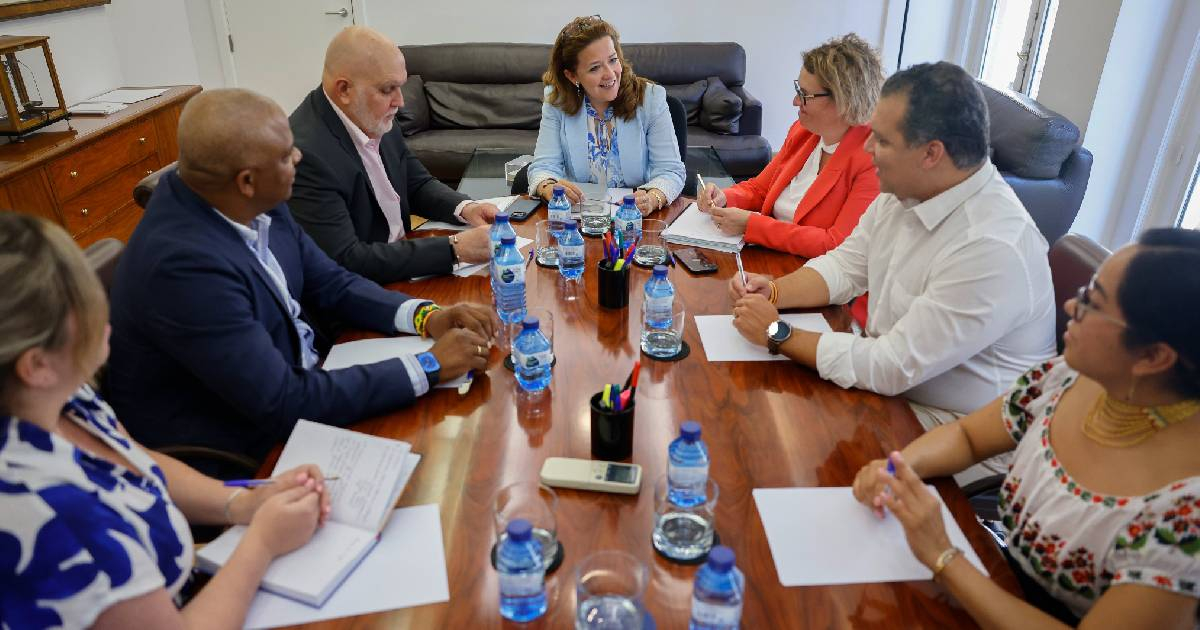
The Health Counselor of the Community of Madrid, Fátima Matute, demanded from the ministries of Education and Health of Spain a "greater speed" in the accreditation of degrees for Cuban doctors.
During a meeting with representatives of the Association of Cuban Doctors in Spain, the counselor emphasized that the doctors trained on the island have been fighting for several years for the recognition of their university degrees, which they report is significantly delayed, according to a report by the Spanish newspaper ConSalud.
"We have a serious lack of professionals, and a short-term solution, like the one we are implementing in the Community of Madrid, would be to have that degree recognized so that they can work and enrich our system," Matute stated at the end of the meeting.
In his opinion, it is necessary to commit to helping Cuban health professionals residing in Spain so that their "excellent training, experience, and work can be done alongside us." He also recalled that "they showed us their commitment during the pandemic, and just as they risked their lives to save us, we will not relent in this obligation we have."
The Cuban side, for its part, reported a series of irregularities that added further delays to the process.
"In the last days of August and the first days of September, university records from Cuban universities directly stopped being issued. Little by little, we learned that the reason was, apparently, that the stamps on the documents were fake. The documents arrived at law firms in Spain, and they handed them over to processing agencies, which instead of following the process, would put fake stamps on them," explained Julio Antonio Roque González, coordinator of the Cuban Homologations Movement, last May.
The coordinator stated that “if that is truly the reason for the delay, it shouldn't take so long to figure it out. There must be something we are missing, and when everything logical escapes you, you start thinking about the illogical, like conspiracy theories. So the reason this is happening could be anything.”
One opportunity that graduates on the island have is that "all Cuban universities are public and the training is homogeneous, so everything should be much more automatic and easier for the recognition of degrees," added Roque González, which means the process should take less time than in other cases.
The agreement reached between the Spanish accreditation agency (ANECA) and the Cuban agency (JAN) explains it this way: "Homologating a Cuban is much easier; we just need to verify that we have actually graduated from a medical faculty that is already recognized here," notes the coordinator.
Matute sees it that way too. “All Cuban universities are public and the training is homogeneous, so the recognition should be much more automatic and easier. The Community of Madrid will always be by their side, and we are looking forward to them working alongside us. We are going to fight for those doctors, nurses, and everyone who needs us,” she stated in a process for which she has offered to be a liaison with the collegiate body to assess the possibility of issuing a criminal record certificate or a responsible declaration, which is essential to practice the profession in Spain.
There have been various demonstrations by doctors to expedite their homologation processes. Last April, both Cubans and those of other nationalities gathered in front of the Congress of Deputies in Madrid to protest the delays.
According to several participants, some homologation processes have taken up to 7 years, during which professionals are forced to work in jobs unrelated to their training, which is particularly alarming given the shortage of medical staff in Spain that affects nearly 500,000 patients.
What do you think?
COMMENTFiled under: